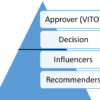Success isn’t just about charisma or smooth talk. It’s about strategy, persistence, and continuous improvement. Sales professionals are akin to athletes, constantly honing their skills, adapting to challenges, and striving for peak performance. Just as athletes train their bodies, salespeople must train their minds and skills to thrive in a competitive marketplace.
Like any athlete, salespeople must follow a rigorous training regimen to stay at the top of their game. This training encompasses a variety of skills, including:
1. Product Knowledge:
Just as an athlete knows every inch of their playing field, a salesperson must intimately understand the product or service they’re selling. This means knowing its features, benefits, use cases, and competitive advantages inside and out.
2. Communication:
Effective communication is the cornerstone of sales. Sales athletes must master the art of persuasion, active listening, and clear articulation to engage prospects and convey value.
3. Prospecting:
In sales, finding potential customers is akin to scouting opponents. Salespeople must continually prospect for new leads, identifying and qualifying prospects who are most likely to convert into customers.
4. Relationship Building:
Building strong relationships is essential for long-term success in sales. Sales athletes cultivate trust, rapport, and credibility with their clients, turning one-time buyers into loyal advocates.
5. Objection Handling:
Just as athletes anticipate their opponent’s moves, salespeople must anticipate and overcome objections. This requires quick thinking, empathy, and the ability to address concerns effectively.
6. Closing:
The final sprint in the sales process, closing requires finesse, confidence, and strategic timing. Sales athletes know when to ask for the deal and how to navigate negotiations to secure the win.
Flexing Your Sales Muscles
To excel in sales, one must continuously flex and strengthen their sales muscles. Here are some strategies to stay sharp:
1. Practice, Practice, Practice:
Repetition is key to mastery. Sales athletes should regularly role-play different scenarios, refine their pitch, and seek feedback to identify areas for improvement.
2. Stay Informed:
The sales landscape is constantly evolving. Salespeople must stay informed about industry trends, competitor strategies, and market developments to adapt their approach accordingly.
3. Set Goals:
Just as athletes set performance goals, salespeople should establish clear objectives for themselves. Whether it’s meeting a sales quota, securing a certain number of new clients, or improving closing ratios, goals provide focus and motivation.
4. Embrace Failure:
Failure is an inevitable part of the sales journey. Sales athletes view setbacks as learning opportunities, using each experience to refine their approach and grow stronger.
5. Invest in Training:
Professional development is essential for sales success. Salespeople should seek out training programs, attend workshops, and leverage resources to sharpen their skills and stay ahead of the competition.
Conclusion
In the world of sales, success isn’t reserved for the naturally gifted; it’s attainable through dedication, discipline, and hard work. By embracing the mindset of a sales athlete and committing to continuous improvement, salespeople can strengthen their sales muscles, achieve peak performance, and reach new heights of success in their careers. So, lace up your sales sneakers, hit the training ground, and unleash the champion within!










